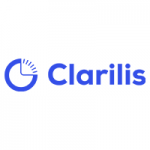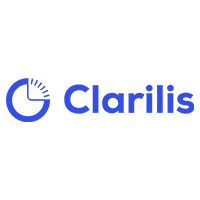Clarilis case study: Automation helps Biffa reduce business waste one contract at a time
When leading UK waste collection specialist, Biffa, asked TLT LLP for help to consolidate and simplify its job contracts to meet the demands of new government legislation, it got much more than it expected. As well as a new set of made-to-measure legal clauses, a new automated solution from TLT and Clarilis reduced its contract drafting time by 75%, and turned its HR department into the one to watch.
The Challenge
Following the government’s Good Work legislation in April 2020, all UK employees were given the right to a comprehensive written statement of their employment details from day one in post, rather than within two months of starting work.
For Biffa, one of the UK’s leading commercial and household waste collectors, this constituted a considerable headache. Responsible for issuing around 1,800 employee contracts a year, the legislation meant that its HR department would not only need to work faster, but would also need to update all new contracts and offer letters to ensure full compliance.
As it scoped out the project, the team at Biffa decided to see if it could consolidate some of the many variations of clauses across contract types to help improve the end process. With so much at stake, Sarah Airey, Biffa’s Head of HR, asked TLT for help.
Leading by example
As TLT began assessing Biffa’s existing contracts and letters to reduce some of the complexity involved, it became clear that the entire process was ripe for automation. Introducing automation meant the innate difficulties of producing a high volume of contracts quickly and accurately could all be met, with the added benefits of mitigating risk and freeing up the HR team for more strategic work.
TLT had first-hand automation experience, both of how to prepare for and manage the process, and of the very tangible benefits. It had undergone a similar process internally, automating settlement agreements with the automation platform provider, Clarilis. Since then, the two companies had worked in partnership to help more of TLT’s clients reap the same rewards.
James Touzel, Head of TLT’s FutureLaw Innovation Programme explains: “Clarilis exceeded our expectations with our own implementation of their solution and working together we can now add significant value to our clients. We were able to guide Biffa using our experience of the automation process and assessment of ROI to help get key stakeholder buy in.”
Engaging the end user is key to any digital transformation project, and though it was the HR team who would be using the automation platform, Biffa still needed to get key stakeholders in HR, IT and procurement onside. Clarilis helped Sarah and her team with demonstrations showing how quickly they could produce an accurate offer letter or contract. In the end, there was very little to do to sell the concept because the demonstration did that for them; they could see real results now and recognised the ongoing future potential.
Save time, reduce risk and add value
Time was the first and most obvious benefit of the automation programme. Previously the HR team had had to choose the right contract template from a choice of hundreds, then manually populate it, which took 20-25 minutes with checking. Now that same process –downloading the letter and contract, and checking the inputs – takes less than five minutes from start to finish.
Secondly there was a marked improvement in accuracy, reducing the risk of errors and mistakes that naturally happen when you do things manually – the system even double checks postcodes against the Post Office postcode finder.
The process resulted in a lot of welcome simplification too. “We reviewed everything”, Sarah explains. “You have to in order to automate, and that was a huge benefit. TLT helped us condense the number of clauses and reduced some of the complexity around the contracts. But from our perspective the most valuable benefit is about allowing us the time to spend on value-add activities, rather than any cost savings. The team who uses the system can’t wait for the next bit!”
“When we started the project we weren’t thinking about automation. It wasn’t until we began working with TLT and they mentioned contract automation that we realised the potential it could have for us at Biffa. It’s enabled us to start thinking, what else? What else can we do to speed up the production and generation of things and make them more accurate? It’s opened our eyes to all the opportunities and other parts of the business are now looking to us to point the way forward,” said Sarah Airey, Head of HR, Biffa.



